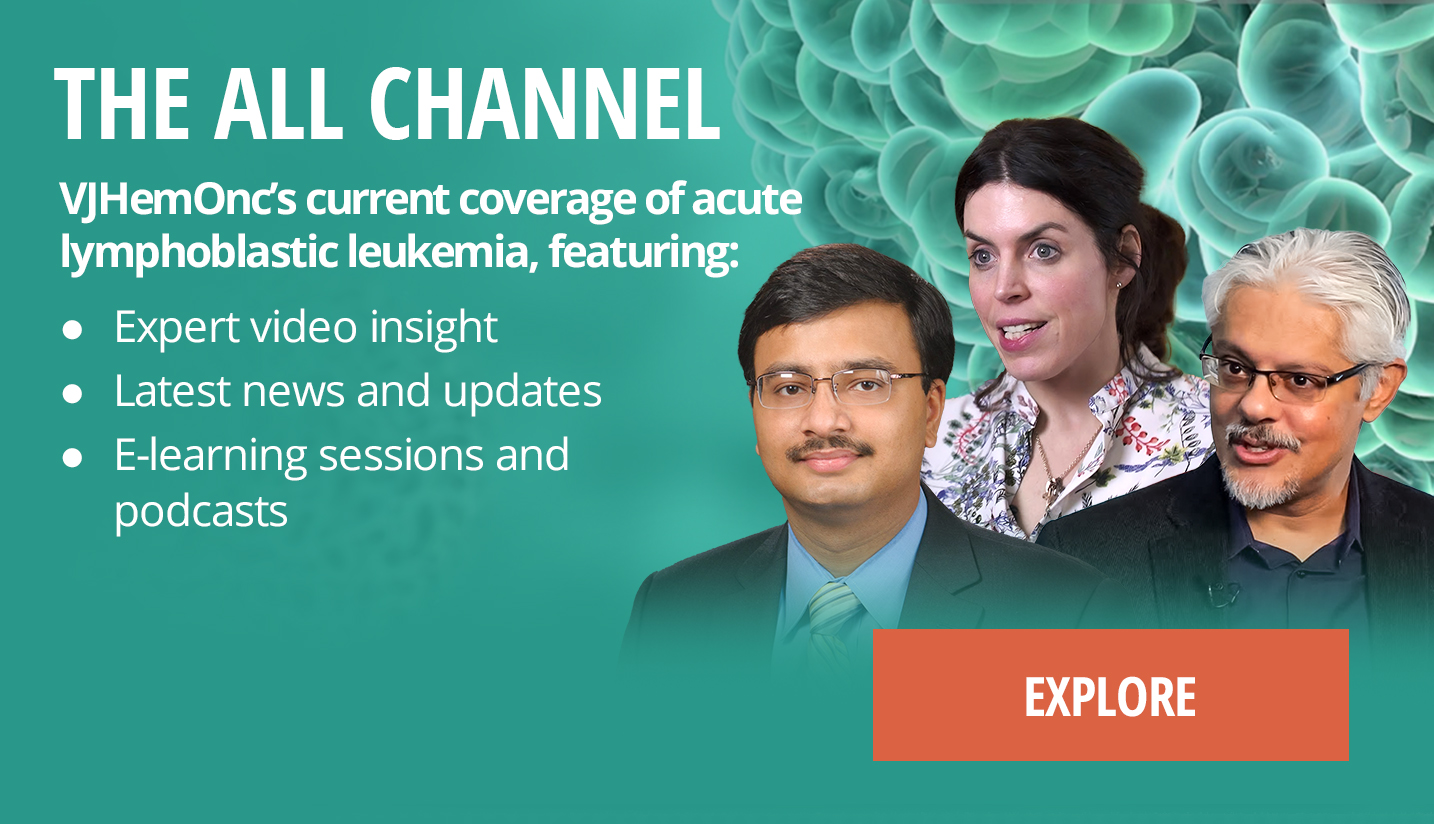Yeah, I think treating young adults with ALL, some of those patients have Philadelphia chromosome positive ALL, which is a disease I work on, but the majority actually have Philadelphia chromosome negative ALL. That’s a really heterogeneous group. And I think what’s unique now is that these patients are sort of at this nexus of different groups, both in terms of age and sort of medical context, but also in terms of disease biology...
Yeah, I think treating young adults with ALL, some of those patients have Philadelphia chromosome positive ALL, which is a disease I work on, but the majority actually have Philadelphia chromosome negative ALL. That’s a really heterogeneous group. And I think what’s unique now is that these patients are sort of at this nexus of different groups, both in terms of age and sort of medical context, but also in terms of disease biology. And so there’s really varied patient situations in terms of their ability to tolerate intensive chemotherapy and really varied disease biology as we’ve learned more. There’s extreme genetic heterogeneity as well. It’s really complex. And we’re also seeing really complex and rapid advancements in treatment developments with novel agents. And so it’s really an exciting time, but it’s really, really nuanced and a lot of changing options.
And so what I advise community oncologists is that you are an incredible, important partner in the care of these patients. You’re often the ones diagnosing these patients. You’re providing a lot of the treatment, a lot of the supportive care. But reach out early to your expert in your region for advice and potentially a referral of that patient for a second opinion for potentially clinical trials, which are really important for advancing the field. If there’s not a clinical trial support appropriate, but to partner in the care of that patient and find the best balance for that patient in terms of getting care in a specialized center as well as community-based support and practice.
This transcript is AI-generated. While we strive for accuracy, please verify this copy with the video.














